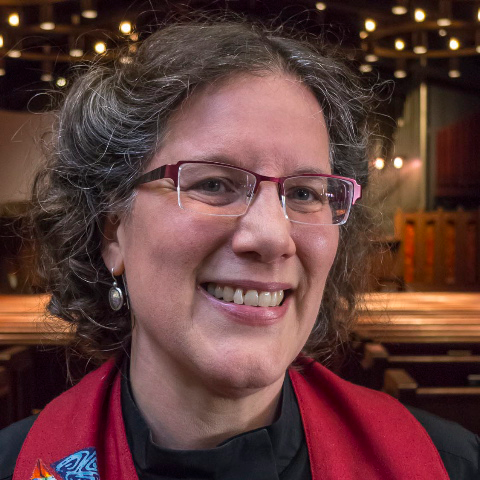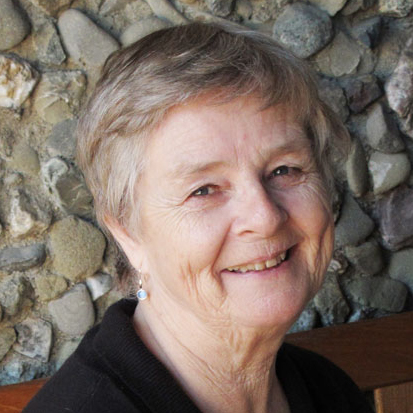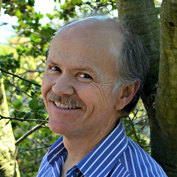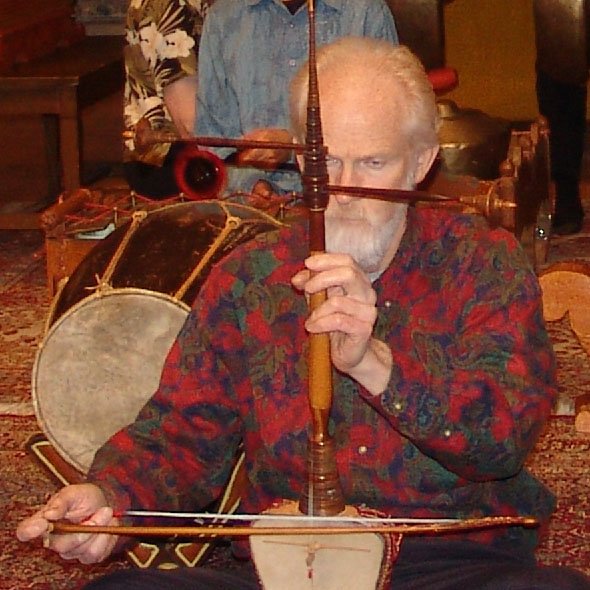“
We are all longing to go home to some place we have never been – a place half-remembered and half-envisioned we can only catch glimpses of from time to time.” (From this morning’s reading from Starhawk.)
This longing for home is the desire to feel a sense of belonging.
We all have memories of home. People with happy and unhappy childhoods share the longing for home. Sometime each one of us has surely felt like a stranger in a strange land. We are homesick for a place where we are accepted for who we are. Our strengths are encouraged. Despite our flaws, we are loved.
This longing for home is powerful.
When we see people, having to leave their homes, walking with only little bundles of things they can carry, we can feel the wrenching agony. Our hearts ache when we hear of squalid living conditions where people are treated like trash. We’re grateful to the Greater Richmond Interfaith Program for offering people shelter, food, and care. We feel fortunate to partner with them. We want everyone to have dignity and safe homes.
There’s no place like home. I mean really. There is no place that lives up to all we long for in a home.
As a child at home, I remember saying, “I just want to go home.” I wanted to be somewhere where everything was okay.
As an adult, I’ve dreamed of a young girl walking toward a brightly lit big house where she is warmly welcomed. I’ve dreamed of a big house where I keep discovering more rooms, more spaces for more possibilities.
Maybe the homecoming we envision has lights lit in the windows, homemade bread coming out of the oven, champagne popping, banners unfurling, the band playing, and much merry making. Homecoming rarely lives up to such expectations.
Maybe our vision of leaving home is where we are sent on our way with a blessing, with paper hearts showered on us, rose petals scattered before us. Leaving home rarely looks like that.
Yet leaving home and homecoming are part of the journeys of our lives. Life is coming and going, departures and return, letting go of homes and making new homes. Leaving is part of the journey. Usually a child only grows up by leaving home. Sometimes we find our parents and our family only when we leave them. Sometimes we return to them in a new way. Life requires leaving and letting go. We leave home, school, our youth, middle age, loved ones, careers, possessions, eventually life itself.
Bill and I are in the midst of leaving home and making a new home. This is something you have probably experienced or will experience. I hope as we share our personal experiences, you’ll reflect on your own.
I graduated from college in 1970 and graduate school as an English major in 1976. For all these years since I have kept my college papers. I’ve never taken them out and reread them. This week I glanced through papers – the image of white in Robert Frost’s poetry, comparing the social structures in Pride and Prejudice and Middlemarch, images of home in the novels of Wright Morris…. I told our son Ben. Ben said, “I know it’s silly, but I’d like to read your papers.” The papers had gone out with the recycling that morning.
Bill arrived a half an hour early for a meeting here this week. He went to the downstairs office where he had boxes unopened from 18 years ago when we ran out of time to sort through papers before moving from Salt Lake City to here. In the boxes were theological school papers and reams of old sermons, pages that were once so important to him. True classics! He felt great as he let them go into the recycling bins.
Bill and I have let go of so much. And there are still 24 more file drawers and umpteen boxes of papers to go through!
I remember when our daughter Sarah and I were helping my mother go through things. Recognizing ourselves in one another, we three generations of women got laughing when we came to an overflowing, chaotic folder of papers labeled “Papers to Be Filed In the Proper Place.” Tell me we’re not alone! Tell me you have lots of papers, too.
Among our folders and boxes are treasures.
Tucked away with things of my mother’s I discovered her journal. She was 18 and made a trip from her little town in Nebraska to visit California. It was 1936 and the only way to cross the San Francisco Bay was by ferry. She writes of seeing the construction of the Golden Gate Bridge.
When I was in junior high school, friends and I passed notes to each other throughout the day. I kept them all. I had a little flower patterned cardboard chest with four drawers. Each drawer was full of these folded up notes of friendship. Eventually the chest got stored in the basement. I didn’t want to throw these notes out. They were a record of a time of my life. I also didn’t ever re-read them. And if I could reread them now, maybe the 13 year old me would be fun for the 65 year old me to meet. When my parents moved from my childhood home to a new home, they threw them out. They had to.
All the papers I have now mark other periods of my life, peace corps years, my ten years of teaching, years of parenting, of going to theological school, and my 27 years in ministry. I don’t want to just throw them out. I know that within the reams of papers are significant moments of my life. Yet the day never seems to come to read them. Maybe the day never comes to read them because we go on living, learning new things, having new experiences.
I need to let go. I need to save my children from an overwhelming task. I have to trust in the spaciousness and freedom that will come with being lighter.
We let go in order to move into next chapters of life.
Wednesday late afternoon, Bill and I got the keys to the condominium in Oakland which will eventually become home. We took over two little plastic white chairs and we sat there in the empty rooms. Wednesday morning had been full and began early. We hadn’t done what we do almost every morning. Our practice is to read a poem, select one line, write for 10 minutes and then share what we wrote. So we sat in our plastic patio chairs and wrote in our black and white composition books. I said, in retirement if we want, we could write for 20 minutes. So we took more minutes and wrote about what we hoped would happen in this new home. We had brought along sticks of incense and a candle. After we read what we wrote, we walked through the rooms blessing them as a new home.
This church is a home. We want you to feel seen and welcomed here. We want you to feel as if the walls whisper to you, “It’s ok. Let go your burdens. We can hold you.” We so want this place to be where you know yourself to be a good person. We want you to feel at home.
In religious community, we learn from one another. People have gone through what you are going through. If you are soon to welcome a first child to your life, you’ll find people here whose infants are now toddlers. If you are looking to retire, as Bill and I are, you’ll find people who have retired. Through hearing one another’s stories, we all find our way. Church member Hillary Lorraine wrote us a long, good letter.
She wrote, “When I retired and began to simplify my life, I was surprised by its spiritual impact. The house sold, we gave away books, sent papers to the recycling center, sold furniture, sent clothing to the Goodwill… All the things I had done and accumulated to define who I was were gone. I discovered if I couldn’t see them, I actually couldn’t remember much of my past since each ‘thing’ carried memories. Details of the past began to fade, and I was left largely with the present.
If I wasn’t defined by my memories and accumulated accomplishments, then what was I? What possible good could I be?
Then one day, I lived into the answer of just being alive as a very tiny reverent part of the universe.
Retirement was hard, sad, joyous, gut wrenching, painful, ecstatic, eye opening. Life shattering; at times like in-depth psychoanalysis and the best thing that ever happened to me. I assure you that life will feel expansive, spacious, free, and really, really good.”
Such a good letter…shall I keep it? Where do I file it? Can I simply internalize it and live it?
We want this church to be a place that reminds you what is most important, that calls you home to yourself.
You are a good person. You already make this world a better place. Thanks for this home you all make together, a place of return and sending forth to live your lives with integrity and joy, in the service of love and justice.
“Home,” wrote Emily Dickinson, “is the definition of God.”
May you feel at home with yourself, at home with one another.
When you make an inner home, an inner sanctuary, you can wander just about anywhere and feel at home. An inner home can see you through outer changes.
I remember a retired minister’s story. I cannot remember the minister’s name. I know I have it among my papers. I don’t know where. I do remember her story.
After a long and active ministry, she retired. Some years later, she moved to a nursing home. She was walking through the lobby when another resident, a woman asked her, “Where is your god of ages past?”
The minister was taken aback.
Did this woman know of her Unitarian Universalist humanist leanings? Was she questioning her theology?
The woman seemed agitated.
The retired minister thought a moment and said, “Oh, do you mean the Isaac Watts hymn? ‘O God our help in ages past, our hope for years to come, our shelter from the stormy blast and our eternal home’?”
The woman said, “Ah, yes. Thank you. I’ve been trying to think of that all day.”
The minister and the woman sang the hymn. The woman relaxed, and the minister knew there was still good work for her to do.
May you find shelter in being seen for who you are.
May you find hope in this place.
May you dwell always in your goodness.
May goodness and hope be your eternal home.
Unitarian Universalists find wisdom in the world’s religions, in poetry and personal experiences. We’re eclectic. Today we’ve sung a song from Carolyn McDade whose songs like Spirit of Life are beloved Unitarian Universalist hymns. Our reading comes from Starhawk who is a writer and activist in the pagan tradition. After the reading we will join our voices in singing a traditional Christian hymn based on a Psalm of the Hebrew scriptures.
Starhawk writes, “We are all longing to go home to some place we have never been – a place half-remembered and half-envisioned we can only catch glimpses of from time to time. Community. Somewhere, there are people to whom we can speak with passion without having the words catch in our throats. Somewhere a circle of hands will open to receive us, eyes will light up as we enter, voices will celebrate with us whenever we come into our own power. Community means strength that joins our strength to do the work that needs to be done. Arms to hold us when we falter. A circle of healing. A circle of friends. Someplace where we can be free.”

















